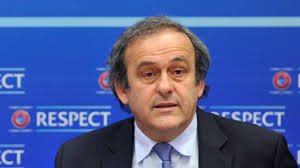By David Owen
October 21 – Michel Platini, the UEFA President, has used a keynote speech to European Union (EU) Sports Ministers in Rome to launch a scathing attack on the practice of third-party ownership (TPO).
Speaking of “an urgent need to act and respond”, Platini called for a “tailor-made legal framework” and said there was “no place for third-party ownership of players in European sport…If we fail to deal with this properly”, he added, “it will not just be a defeat for UEFA, nor even just for the sports movement, but for all Europe”.
His comments come less than a month after his FIFA counterpart Sepp Blatter announced that the world governing body had decided to ban TPO after a transitional period. Other leading football figures have, however, either expressed opposition to an outright ban or underlined the difficulty of stopping it.
Karl-Heinz Rummenigge, German head of the European Club Association, representing some 200 clubs across the continent, observed last week that, “Every single player in South America is owned by a third party so I don’t know how FIFA will deal with this problem.”
Arguing that TPO contravened principles of human dignity laid down in the EU’s charter of fundamental rights, Platini explained that the practice “refers to the situation where a player is – to put it bluntly – carved up into economic rights, which are then shared between one or more investment funds.”
The players concerned “lose their contractual freedom, as the owners of their economic rights abuse the powers entrusted to them and secure lucrative financial deals at the players’ expense. They are therefore deprived of their free will.
“And what do you think would happen if the same fund owned the economic rights of a number of players in different teams in the same competition?,” the UEFA President went on. “The answer is simple: the nightmare of match-fixing could rear its ugly head. The essential values of integrity and sincerity that should be embodied in sport are therefore being scorned, even violated.”
On Financial Fair Play (FFP), Platini said that “previously unthinkable” reforms had been adopted and implemented. “Aggregate losses among European clubs, which had reached €1.7 billion in 2011, fell to €800 million in 2013, a drop of more than 50% in less than two years. Thanks to Financial Fair Play, we are therefore heading in the right direction.”
He described the so-called “Cooperation Arrangement” between UEFA and the European Commission, the EU’s executive arm, signed in Brussels last week as a “historic step forward for European sports policy”.
Contact the writer of this story at moc.l1745057498labto1745057498ofdlr1745057498owedi1745057498sni@w1745057498ahsra1745057498w.wer1745057498dna1745057498

